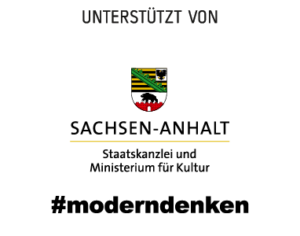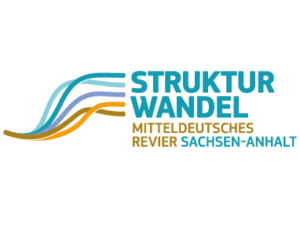More than 40 partner institutions from science and industry are involved in the DiP joint projects – in addition to Martin Luther University Halle-Wittenberg (MLU), regional universities, non-university research institutions, regional companies and, in some cases, supra-regional partners. The DiP coordination office – headed by DiP co-spokesperson Prof. Dr. Klaus Pillen, Professor of Plant Breeding – is based at Martin Luther University Halle-Wittenberg (MLU).
The collaborative projects can be categorized thematically into three so-called “lighthouses”: (a) “Value chains of agricultural crops” (cereals and straw, sugar beet, pea), b) “Sustainable and climate-resilient cultivation systems for the production of bio-based raw materials” (agroforestry, hemp and superfood) and c) “Value chains of special crops” (valuable materials from plant residues, special crops, medicinal and aromatic plants, potential analyses). The DiP consortium also includes three junior research groups (NWG) and a project for “accompanying research”. As an integral, project-accompanying measure, this is intended to examine the sustainability and socio-economics of the DiP model region and the individual alliances and to evaluate the transfer, standardization and sustainability of the funded projects in close cooperation with the DiP coordination office.
The 19 DiP joint projects at a glance:
- Liglue – “Formaldehyde-free binders based on bio-based lignin polymers”
- ZaZiki – “Sustainable sugar beet cultivation systems – innovations and artificial intelligence”
- LeFOS – “Recovery of levanes and fructo-oligosaccharides of the levan type from sugar beet processing residues”
- DiPisum – “Digitalization-driven development of Saxony-Anhalt into an innovation center for pea breeding, cultivation and processing
- MAGDI – “Magnetic resonance for the digitization of plants”
- SMART Agroforestry – “Digitization to promote the establishment of agroforestry systems at the landscape level as a contribution to climate resilience in southern Saxony-Anhalt and decarbonization of its chemical industry”
- iQ-Hemp – “Digitalization in quality management of the industrial hemp value chain”
- SuSaKlim – “Superfood from Saxony-Anhalt – Climate-adapted crop rotations in organic farming and development of digital value chains for marketing”
- Tres2Cera – “Ceramides – from fruit residues to bio-based health products”
- BioCasNavi – “AI platform for the rapid creation of biocatalytic cascades for innovative bioprocesses”
- NA-WIR – “New medicinal plants and active ingredients from Saxony-Anhalt”
- HyperSpace – “Digitally supported expansion of bioeconomic value creation from the medicinal plant St. John’s wort (Hypericum sp.)”
- OptiLamia – “Optimization of Lamiaceae, a group of medicinal and aromatic plants, for the development of a sustainable value chain from agricultural production to processing into medicinal products and foodstuffs in Saxony-Anhalt”
- DiPlanD – “Sustainably produced vegan vitamin D3 and cholesterol from Nierembergia repens”
- PhosFect – “Sustainable production technologies for improved, phospholipid-based transfection reagents”
- NWG DIAMANT – “Digital methods for applied precision genomics, network analysis and technology development to promote the plant-based bioeconomy”
- NWG FaiReSyst – “Sustainable use of field margins for climate-resilient agroecosystems in southern Saxony-Anhalt”
- NWG PhenoPren – “Sustainable production systems for valuable prenylated natural substances based on phenolic agricultural and forestry residues”
- BegleitDip – “Accompanying research into the digitalization of plant-based value chains for the development of participatory and learning sustainability monitoring”
In the first funding phase (04/2024 – 12/2028), the DiP consortium will be funded by the BMBF for around five years with an estimated >45 million euros.
Background: As part of the National Bioeconomy Strategy, the Federal Ministry of Education and Research (BMBF) is funding the implementation of the Structural Strengthening Act for Coal Regions in the Central German Coalfields in Saxony-Anhalt. The state had identified the bioeconomy and digitalization as key fields of technology and drivers for the necessary structural change in its structural development programme for the Central German coalfield in Saxony-Anhalt.


